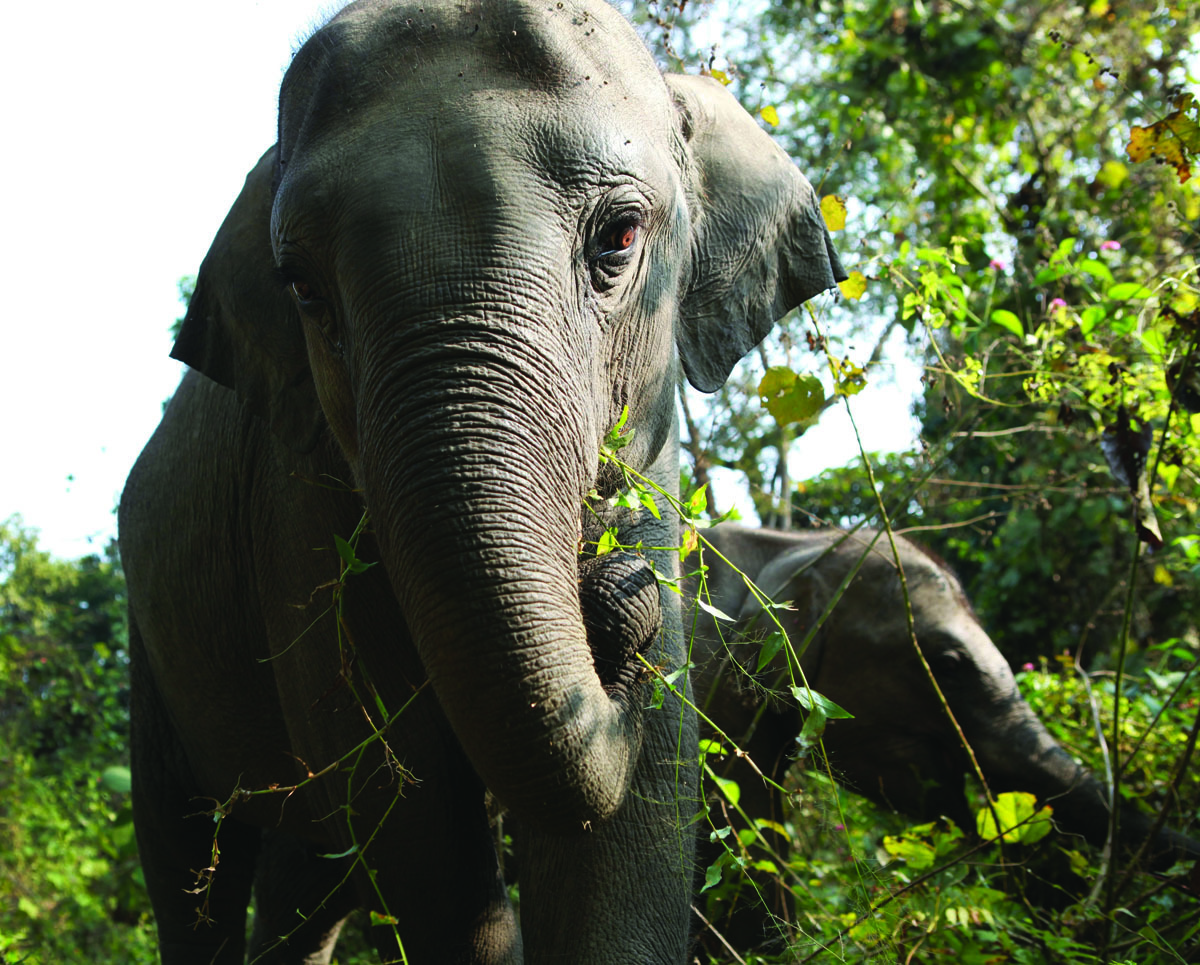Updates
How IFAW has helped animals and people during the Ukraine crisis
Learn moreconservation win for endangered Asian elephants as vital protection is awarded

Gandhinagar, India – There was an important win for Asian elephants today at the 13th Conference of the Parties (CoP) of the UN Convention on the Conservation of Migratory Species of Wild Animals (CMS) in Gandhinagar, India, as governments accepted a proposal to list the species for the first time to protect it.
Classified as Endangered by the IUCN Red List, Asian elephants suffer threats from habitat loss and fragmentation as well as illegal killing for their ivory and other products, such as skin, which has fuelled poaching to supply a growing demand for elephant skin jewellery. In addition, Asian elephants are regularly victims of retaliatory attacks due to human-elephant conflict and can be killed by contact with human infrastructure, such as collisions with trains.
Attending government representatives of the 130 member parties to CMS accepted by consensus a proposal by host country India to list the mainland Asian elephant on Appendix I – affording it the highest protection possible. India also announced its intention to work with other Asian elephant range states to form a regional agreement with collective actions to safeguard the iconic animal.
Matt Collis, IFAW Director, International Policy, and head of IFAW’s delegation at CMS, welcomed the decision, saying: “We are very pleased with the outcomes for Asian elephants, which have long been in need of concerted efforts to safeguard them for future generations. Elephants traverse many states in Asia without recognising borders and IFAW hopes that countries will come together to do everything possible to ensure they have safe passage as they migrate between states.
"There is great momentum to see this key species protected and IFAW hopes the decisions taken for Asian elephants at CMS today will help ensure that people and animals thrive together in the place they call home.”
While India is home to 60% of Asian elephants, some of these animals regularly cross borders into neighbouring states, such as Bangladesh, Bhutan, Myanmar and Nepal, and for populations outside of India, many cross other international boundaries where they face a range of threats. Several of these small transboundary populations are critical if the species is to survive in states beyond India.
The Asian elephant – the continent’s largest terrestrial mammal - also suffers a gender imbalance due to historical poaching of males for their ivory, as only male Asian elephants have tusks. It is estimated that the Asian elephant population is now below 40,000 after suffering a 50% decline over the last 75 years.
Although many Asian countries are not members of CMS, regional agreements with collective actions can include CMS member and non-member states, and the hope is that many Asian elephant range states will now work more closely together to protect this species.
The future of many other migratory species will be affected by decisions taken at this meeting, which began on Monday and is scheduled to run until Saturday (22). Other key species also due to be considered for listing today include jaguars and oceanic whitetip sharks.
Ends
For more information or to arrange interviews with IFAW experts in Gandhinagar please contact Clare Sterling on mobile +44 (0)7917 507717 or email csterling@ifaw.org. Skype interviews can be arranged on request.
Notes to Editors:
The purpose of CMS is to bring together countries to cooperate on how they manage and protect species, particularly endangered species, which are migratory and cross national boundaries. More information and documents on CMS are available here: https://www.cms.int/en/cop13
IFAW is tweeting updates from the proceedings via various accounts including @Action4IFAW http://twitter.com/action4ifaw
Images and footage will be available for media use.
About the International Fund for Animal Welfare (IFAW) - The International Fund for Animal Welfare is a global non-profit helping animals and people thrive together. We are experts and everyday people, working across seas, oceans and in more than 40 countries around the world. We rescue, rehabilitate and release animals, and we restore and protect their natural habitats. The problems we’re up against are urgent and complicated. To solve them, we match fresh thinking with bold action. We partner with local communities, governments, non-governmental organisations and businesses. Together, we pioneer new and innovative ways to help all species flourish. See how at ifaw.org
Our work can’t get done without you. Please give what you can to help animals thrive.
Unfortunately, the browser you use is outdated and does not allow you to display the site correctly. Please install any of the modern browsers, for example:
Google Chrome Firefox Safari